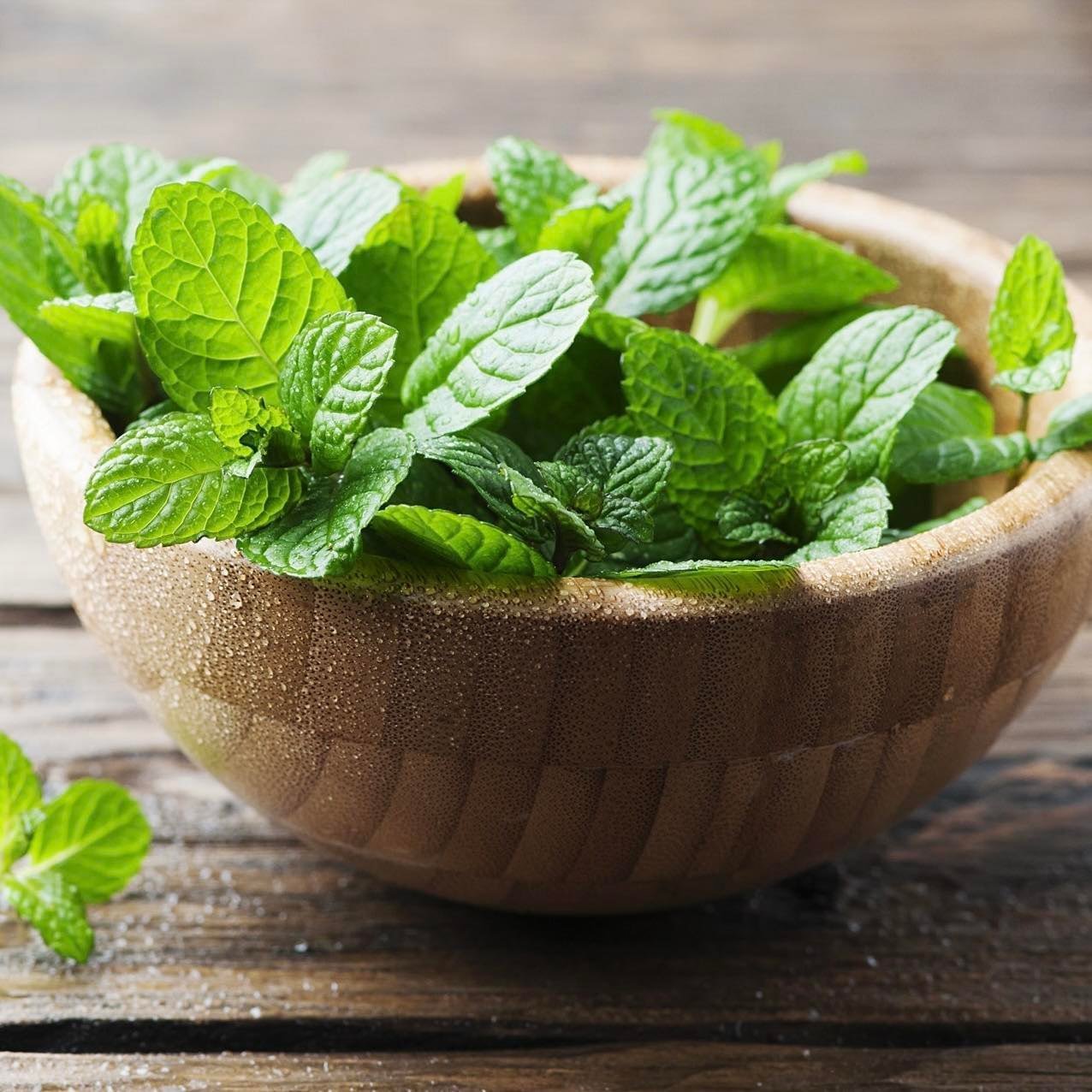
Contact Us

Imagine walking through a garden filled with blooming roses, the sweet scent enveloping you in a blanket of tranquility. Or perhaps you catch a whiff of freshly baked cookies, instantly transported back to cherished memories of home and comfort. Scents have a remarkable ability to evoke emotions, trigger memories, and transport us to different times and places.
In the world of psychology, the study of how fragrances influence human behavior and cognition is known as perfume psychology. This fascinating field delves into the complex interplay between scent and psychology, exploring how different fragrances can impact our mood, behavior, and memory.
At the heart of perfume psychology lies the olfactory system, our sense of smell, which is deeply intertwined with the brain's limbic system, responsible for emotions and memory. When we inhale a fragrance, odor molecules interact with olfactory receptors in the nasal cavity, sending signals to the brain's limbic system, where they are processed and interpreted.
Numerous studies have shown that certain fragrances have the power to elicit specific emotional responses. For example, the scent of lavender is often associated with relaxation and stress relief, while citrus scents like lemon and orange are known for their invigorating and mood-boosting properties.
But perfume psychology goes beyond just mood modulation. Fragrances also have the remarkable ability to evoke memories and trigger nostalgia. The scent of a particular perfume can transport us back in time, unlocking long-forgotten memories and emotions associated with past experiences.
In this article, we embark on a journey into the captivating realm of perfume psychology, where we unravel the mysteries behind how fragrances influence mood and memory. We'll explore the science behind scent perception, delve into the psychological effects of different fragrances, and discover practical ways to harness the power of scent in our daily lives.
Join us as we uncover the fascinating interplay between scent and psychology, and learn how the right fragrance can uplift our spirits, soothe our souls, and unlock the doors to our most cherished memories.
Explore the diverse range of perfumes at My Perfume Shop and embark on your olfactory journey today!
The sense of smell, or olfaction, is a complex and intricate process that plays a vital role in our everyday lives. Unlike our other senses, which rely on specific sensory organs (such as the eyes for vision or the ears for hearing), olfaction is processed by a specialized structure in the nasal cavity known as the olfactory epithelium.
Physiological Basis of Smell:
Within the olfactory epithelium are millions of olfactory receptor neurons, each equipped with specialized receptor proteins that can detect different odor molecules. When we inhale, these odor molecules enter the nasal cavity and bind to the receptor proteins, triggering electrical signals that are sent to the olfactory bulb, located at the base of the brain.
Olfactory System and Brain Processing:
From the olfactory bulb, the signals are relayed to various regions of the brain, including the limbic system, which is closely associated with emotions, memory, and behavior. This direct connection between the olfactory system and the limbic system is what gives scents their profound emotional and mnemonic impact.
Emotions and Memory Formation:
Numerous studies have demonstrated the powerful influence of scent on emotions and memory formation. For example, research has shown that certain fragrances can evoke specific emotional responses, such as relaxation, arousal, or happiness. Additionally, scent has been found to be closely linked to memory, with certain odors capable of triggering vivid recollections of past experiences.
Explore the diverse range of perfumes at My Perfume Shop and discover the transformative power of scent today!
The captivating power of fragrances extends beyond mere sensory pleasure; it has the remarkable ability to shape our emotional landscape and influence our mood in profound ways. From the delicate floral notes that evoke tranquility to the invigorating citrus scents that uplift the spirit, different fragrances have unique effects on our emotions and well-being.
Effect of Scent Categories on Emotions:
Various scent categories, such as floral, citrus, and woody, each possess distinctive aromatic profiles that can evoke specific emotional responses. For instance:
Floral fragrances: With their soft, delicate notes of flowers such as rose, jasmine, and lavender, floral fragrances are often associated with feelings of calmness, relaxation, and romance. These scents have a soothing effect on the mind and are commonly used in aromatherapy for stress relief and relaxation.
Citrus fragrances: Bursting with the zesty freshness of lemon, orange, and grapefruit, citrus fragrances have a bright and uplifting quality that can energize and invigorate the senses. These scents are known for their mood-boosting properties, making them ideal for promoting alertness and positivity.
Woody fragrances: Rich and earthy, woody fragrances feature notes of cedar, sandalwood, and patchouli that evoke a sense of warmth, grounding, and comfort. These scents have a reassuring presence that can instill feelings of stability and security, making them perfect for creating a sense of balance and harmony.
Aromatherapy, the practice of using aromatic compounds for therapeutic purposes, harnesses the power of fragrances to promote physical, emotional, and psychological well-being. Certain scents are believed to have specific therapeutic effects on mood and mental health:
Lavender: Known for its calming and relaxing properties, lavender is often used in aromatherapy to alleviate stress, anxiety, and insomnia. Studies have shown that inhaling lavender essential oil can induce feelings of relaxation and promote better sleep quality. 
Peppermint: With its invigorating and refreshing aroma, peppermint is prized for its ability to enhance focus, concentration, and mental clarity. Inhaling peppermint essential oil can stimulate the mind and promote feelings of alertness and vitality. 
Bergamot: The citrusy scent of bergamot is known for its mood-lifting and antidepressant properties. Bergamot essential oil is often used in aromatherapy to alleviate symptoms of depression, boost mood, and reduce stress levels.
Uplifting: Fragrances containing notes of bergamot, lemon, and jasmine can uplift the mood and promote feelings of happiness and positivity. Examples include Acqua di Parma Blu Mediterraneo Mandorlo Di Sicilia Eau de Toilette and Jo Malone London Wood Sage & Sea Salt Cologne.
Calming: Fragrances featuring lavender, chamomile, and sandalwood are renowned for their calming and relaxing properties. Examples include Chanel Chance Eau Tendre Eau de Parfum and Tom Ford Oud Wood Eau de Parfum.
Energizing: Citrusy scents like lemon, orange, and grapefruit can energize the mind and promote feelings of vitality and rejuvenation. Examples include Dior Sauvage Eau de Toilette and Versace Man Eau Fraiche Eau de Toilette.
By understanding the intricate relationship between fragrances and emotions, we can harness the transformative power of scent to enhance our mood, promote well-being, and create enriching sensory experiences. Explore the diverse range of mood-enhancing fragrances at My Perfume Shop and embark on a journey of olfactory discovery today!
The intricate interplay between scent and memory is one of the most fascinating phenomena in the realm of perfume psychology. Fragrances have a profound ability to transport us back in time, triggering vivid memories and emotions associated with past experiences. In this section, we delve into the profound connection between scent and memory, exploring the mechanisms behind scent-triggered reminiscence and the role of associative learning in perfume psychology.
The olfactory system, responsible for our sense of smell, is intricately connected to the brain's limbic system, which governs emotions, memories, and behavior. When we inhale a scent, olfactory receptors in the nose send signals to the brain's olfactory bulb, where scent information is processed and relayed to the amygdala and hippocampus – regions associated with emotional processing and memory formation.
Numerous studies have demonstrated the powerful link between scent and memory, with scent-triggered reminiscence being a well-documented phenomenon. Research suggests that odors can evoke memories more vividly and emotionally than other sensory cues, often transporting individuals back to specific moments in time with unparalleled clarity.
The formation of scent associations is rooted in the principles of associative learning, wherein the brain forms connections between sensory stimuli and past experiences. When we encounter a particular scent in conjunction with significant events or emotions, the brain creates strong neural pathways linking the scent to the associated memories and emotions.
Over time, these scent associations become deeply ingrained in our subconscious, influencing our perception of fragrances and the emotions they evoke. For example, the smell of freshly baked cookies may evoke memories of childhood holidays spent with family, while the scent of pine trees may transport us back to memorable camping trips in the mountains.



Discover the essence of Yodeyma Paris — an inspired rendition of the luxurious scent, now made remarkably affordable. 15ml Dupe Scents Please no...
View full detailsDiscover the essence of Yodeyma Paris — an inspired rendition of the luxurious scent, now made remarkably affordable. 15ml Dupe Scents Please no...
View full detailsEnhance your gifting experience with our luxurious Gift Bag, complete with elegant rope handles. Measuring 200 x 250 x 120mm, this bag is perfect f...
View full detailsA completely vegan perfume, Escada Santorini Sunrise will become your most memorable fragrance. Top notes of fresh addictive mandarin sorbet Heart...
View full detailsDescription Kenzo Flower Eau De Toilette 50ml - A Timeless Fragrance for the Modern Woman Experience the elegance and charm of Kenzo Flower Eau...
View full detailsKeeps underarms cool, fresh and dry Lightly scented, long-lasting protection Size: 150ml Description Exudes a powerful presence in a precise ...
View full detailsSensual; powerful; instinctive A female interpretation of an oriental lavender with amber Description Ingredients Calvin Klein Contradiction f...
View full detailsWelcome to the colourful, enchanted world of ESCADA Fragrances. Each fragrance in the ESCADA Fragrances collection is an invitation to dream, givi...
View full detailsLife is a game, are you ready to play and reach the next level with the The Most Wanted Parfum? Fiery and intense, this Fougere Ambery Spicy fragr...
View full details50ml bottle filled with 30ml of inspired fragrance. High-quality, luxury-inspired scents at an affordable price. Testers come without outer packag...
View full detailsDescription Ingredients First introduced in 1953, Youth-Dew by Estée Lauder remains one of the most iconic and sensual fragrances in the world ...
View full detailsDistinctive fragrance with classic florals and woods Fresh and enticing Base notes create warmth and sensuality Fragrance for women 3ml bottle D...
View full detailsAn Eau de Toilette for her A floral fruity fragrance 10ml bottle Description Harajuku Lovers wicked style love was launched in 2010 as a fl...
View full detailsPerfume for women Mouth-watering fruity floral fragrance Lovers pop electric collection Juicy apple, dewy pear, surrounded by jasmine, cashmere w...
View full detailsDescription Ingredients Directions Fresh. Invigorating. Infused with citrus notes. A revitalizing fragrance for men. Wear it for a happy exper...
View full detailsDescription Ingredients This invigorating scent from HUGO brings a wave of icy freshness and energy to the modern man. The revitalising head no...
View full detailsLong-lasting Presence: Crafted with precision, Afnan 9pm is designed to provide a long-lasting fragrance experience. Elevate Any Occasion: A ve...
View full detailsKeeps underarms cool, fresh and dry Lightly scented, long-lasting protection Long Lasting Scent Description Ingredients More Info V Italia Fra...
View full detailsDescription Ingredients A 150ml BOSS Bottled deodorant spray. The BOSS man is primed to succeed – competitive, driven and ambitious. His daily ...
View full detailsIntroducing Coty Ex'cla·Ma'tion Eau De Cologne, now available in a convenient 15ml spray bottle. This iconic fragrance captures the essence of fe...
View full detailsFloral, warm and spicy scent Personality: Luxurious. Romantic. Sophisticated. Usage occasion: Day or Night High scent longevity DescriptionProduc...
View full detailsDescription Calvin Klein Ck Sheer Beauty Edt 100ml SprayEach and every product we offer is carefully sourced directly from the manufacturer, en...
View full detailsDiscover the essence of Pure XS by Paco Rabanne's signature fragrance, reflected in Complicidad Inspiration by Yodeyma Paris — an inspired renditi...
View full details50ml bottle filled with 30ml of inspired fragrance. High-quality, luxury-inspired scents at an affordable price. Testers come without outer packag...
View full detailsDescription Montblanc Legend Spirit Eau de Toilette, 200 ml Inspired by all forms and shades of white, from snow to marble, this fragrance cre...
View full details{"one"=>"Select 2 or 3 items to compare", "other"=>"{{ count }} of 3 items selected"}
Leave a comment